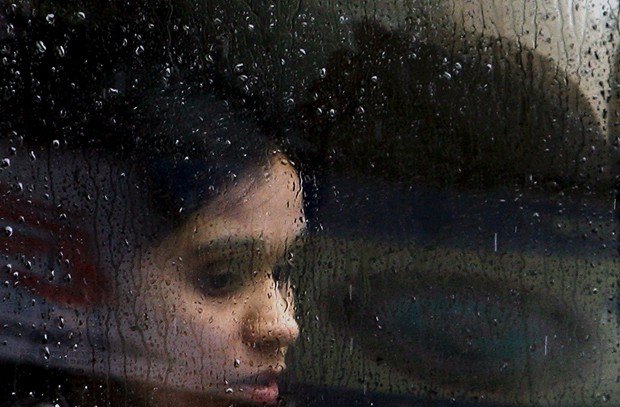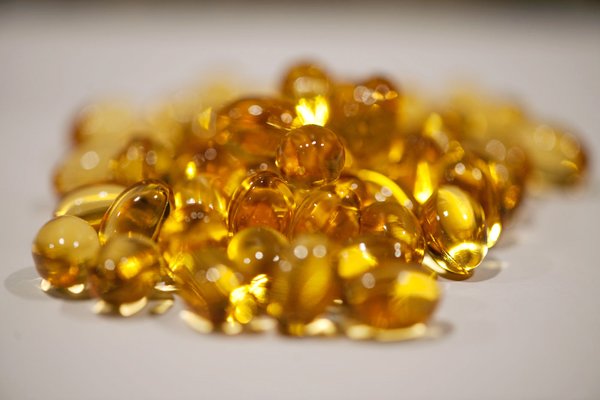''Laziness is an artificial concept. It describes a phenomenon that doesn't really exist''
Science journalist Daria Varlamova about ''spring exacerbation'' and depression. Part 1
What are the reasons for seasonal depression? How to distinguish a real depressive disorder from the usual despondency? Why do many people have ''spring exacerbations''? How to cope or prevent emotional instability? Daria Varlamova, a scientific journalist, answers these and many other questions of Realnoe Vremya.
«If a person with clinical depression goes to the Maldives, he will not necessarily feel better''
We have only recently said goodbye to the winter — a difficult period for many. Therefore, I want to start with the question of seasonal depressions: what are the reasons for them and whether they have a territorial binding?
On this topic, one can find a lot of conflicting data, but there is serious evidence in favour of the existence of the so-called seasonal affective disorder, which is associated with a lack of sunlight. As a prophylaxis for those who live in not the sunniest places, it is often recommended to take vitamin D. Note that there is not enough evidence that taking vitamin D works. Light therapy (that is, sitting under lamps with cold light, reminiscent of daylight) and antidepressants so far give more proven results.
In general, this issue is often a little confusing — one should not mix seasonal depression (a particular manifestation of a large depressive disorder and sometimes bipolar) with seasonal exacerbation of other mental disorders (schizophrenia, anxiety disorders, manic episodes in bipolar disorder and so on). It is believed that people with similar diagnoses have a tendency to experience more vivid symptoms in the spring and autumn, although American scientists from the University of San Diego conducted a four-year study of search queries related to mental disorders (from eating disorders to schizophrenia and anxiety disorders) and concluded that most queries occur in winter. From this, we can conclude that most of the exacerbations occur in winter, and that in this case the problem may be associated with a lack of sunlight. But this requires further research.
If we return to the tendency to depression in the cold season, its connection with the lack of sunlight is more proven. For this reason, it is recommended to walk more outdoors in the sun, or to rearrange your schedule so that the activity falls on a light day.

''The relationship of the tendency to depression in the cold time of the year with a deficit of sunlight is more proved. For this reason, it is recommended to walk more outdoors in the sun, or to rearrange your schedule so that the activity falls on a light day.'' Photo: Arko Datta / REUTERS
But here it is important to understand that not every depression is associated with seasonality and lack of light, so it is not necessarily that if a person with clinical depression goes to the Maldives, he will certainly feel better. However, in general, of course, the sun is better than its absence.
Is spring really a dangerous period? And why spring?
During this period our emotions really become a little brighter, at least on subjective experiences. There is evidence that the statistical peak of suicides in the world falls on the lightest months in both the Northern and Southern hemispheres. For the Northern hemisphere, it's mostly May and June. But so far we do not know why exactly this is happening.
At the same time, sometimes bipolar people have a positive correlation between the mood and the availability of sunlight — closer to late autumn, the tendency to depression is higher, and closer to spring and summer, when the sun begins to look out, there is a tendency to hypomania. But this does not apply to everyone, there are people who fall into depression in summer.
If you know that you will be ''covered'' in spring or autumn, is it possible to somehow prepare and soften this period?
In general, it is useful to observe yourself and find patterns of your depression. To do this, there is a technique called ''mood diary'': every day you record in a notebook or in a mobile application your emotional state, energy level and some key factors that could affect it (how much you ate, how much you slept, whether there was any stress). There are many special mobile applications that allow you to do this.
The thing is that after observing yourself for a while, you get a chance to find clear patterns between what is happening in your life and emotional downturns. For example, it may turn out that a particular type of conflict, too much caffeine or lack of sleep you personally always or often leads to exacerbation. Then you can rebuild your lifestyle to avoid triggers.

''It is useful to observe yourself and find patterns of your depression. There are many special mobile applications that allow you to do this.'' Photo: flickr.com/Billy Lam
First, in the period of exacerbation, it is necessary to sleep well, and the sleep mode should be adjusted for you. Second, it is important to eat regularly and healthy, because sudden changes in glucose (for example, when you starve for a long time, and then eat chocolate) can affect the mood. Also, the prevention of depression and good mental condition contributes to moderate physical activity. At the same time, it is very important to avoid stress as much as possible: during the expected aggravation it is better to avoid business trips, the beginning of ambitious projects or deadlines.
It would be good to pick something like a first aid kit in a broad sense: it should consist of things that help you emotionally stabilize, starting with the same psycho pharm (with prescription, of course). Also, it may be worth checking for some vitamins: for example, iron deficiency can lead to lethargy, and a lack of B vitamins or magnesium can significantly worsen the mood. That is, it is possible that mood-related symptoms are actually caused by vitamin deficiency.
In addition, there is a fairly wide list of non-pharmacological things — such an individual package can be collected for each person. First, there are different ways of relaxation: meditation, a warm bath or exercise. Also in this package should include things that help you distract or feel safe (for example, special heavy blankets for people with autism or anxiety disorders — calculated pressure on the body helps to relax).
Finally, psychotherapy can reduce symptoms and provide additional support. During periods of exacerbation, it is better to choose approaches that focus on reducing symptoms (cognitive behavioural school). There are areas that focus on introspection and in-depth study of the patient's inner world (for example, famous psychoanalysis). This kind of research can be very interesting and useful, but when you have a panic attack or depression strongly affects the performance, it is hardly necessary to prioritize the study of childhood injuries — it is much more important to correct the situation here and now.

''It may be worth checking for some vitamins: for example, iron deficiency can lead to lethargy, and a lack of B vitamins or magnesium can significantly worsen the mood. That is, it is possible that mood-related symptoms are actually caused by vitamin deficiency.'' Photo: REUTERS
Along with it, it is important to slow down a bit in terms of daily tasks and not to take on too much. I note that often people in depression and without the temptation to postpone all things (the feeling that they do not have the strength), and so they seem to freeze in suspended animation. This is not very good, because, being in this state, a person is well aware that he is ineffective, and the feeling of their own inefficiency, in turn, greatly reduces the mood. That is, we get something like a closed cycle.
It is more useful to do small things, break any task into several small ones, do everything gradually, with large breaks for rest and be sure to praise yourself for every step. Quite strongly rooted in our mentality belief that it is necessary to endure, it is necessary to force yourself and do not feel sorry for yourself, works well in the short term. But, if you have a rather shaky period in general and you are working on long-term tasks, it is much better to treat yourself with sympathy.
''The feeling of darkness and despair, which is usually associated with depression, does not always appear''
Speaking of suspended animation: what to do with the inner feeling of emptiness, when a person sees how to fix the situation, what steps to take, but can not do anything, because he is in a state of apathy? It seems as if there are no internal resources to get up and resolve the issue. This is not laziness: some researchers argue that this condition is caused by severe stress and the fact that the body is forced to spend every second to fight it.
In general, yes, but I would like to make a remark about laziness in general. I've talked to a lot of therapists, and they all agree that laziness is an artificial concept that describes a phenomenon that doesn't really exist. Laziness is either fatigue, when the body simply does not have the strength to do something, or fear, similar to the stupor of a perfectionist, when a person begins to procrastinate, because he wants to do everything brilliantly, but understands that, most likely, he will make a mistake.

''There is quite a wide list of non-pharmacological things… first, there are different ways of relaxation: meditation, a warm bath or exercise.'' Photo: rasalkhaimah.ae
Also, one should not disregard the lack of motivation. The reason here may lie in neurobiology, when due to some circumstances (for example, due to the same deficiency of vitamins) in your brain the balance of neurotransmitters is disturbed. Another option: you just see that the costs are much more than the benefits. In general, we are focused on not wasting energy in vain, respectively, if you are constantly too lazy to do something, it means that some part of you believes that all this is meaningless.
Depression affects the reward system, which assesses whether we should move for something. In this state, the situation looks as if we are waiting for the whip all the time — there is a strong irrational feeling that we are falling into something unpleasant. At the same time, we have something like a blind spot on the benefits. That is what motivated us earlier, pleased and spurred, ceases to work. It's like we're sitting in a car, pressing the gas pedal, but nothing happens.
You consciously understand that you need to get up, take a shower, clean up, do business, but in the end you find that instead of 10 hours lying on the couch. The conscious part is all very well, but our motivation works on an older, limbic, mammalian brain system, and it's tied to emotions. Any self-management — not about to force myself to get up by force, a superiority of will and reason, but about how to motivate yourself for a certain attitude to specific problems.
But in depression, this level of functioning is simply not available to people, and you have to start with small things – remember that there are some joys in the world that you can persuade yourself to do at least something.